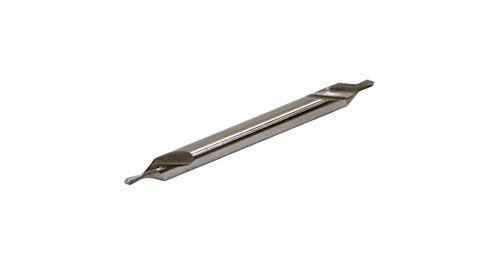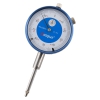Center Drills, HSS, Individual Sizes

- Combined drill and countersink
- 60° included angle
- High speed steel
Combined drills and countersinks, commonly called center drills, are used to produce a center hole on a workpiece for turning between centers.
Center drills are also used to start drilled holes. Because they are very stiff they don't have a tendency to wander.
 Chris' Tips
Chris' TipsHere are the sizes of center drills.
| Number | Body Dia. | Drill Dia. | Length |
| 1 | 1/8" | 3/64" | 1 1/4" |
| 2 | 3/16" | 5/64" | 1 7/8" |
| 3 | 1/4" | 7/64" | 2" |
| 4 | 5/16" | 1/8" | 2 1/8" |
| 5 | 7/16" | 3/16" | 2 3/4" |
Here is a little treatise written by J. W. Early about center drills:
The center drill is only for putting a starting mark on the work piece so that your conventional drill will start easy without walking or grabbing. If your finish drill is going to be 1/4" then I would use a #4 center drill which has a 1/8" diameter of the drill point and a 5/16" diameter body. With a 1/4" hole in order to avoid a push up burr when finish drilling the center drill shoulder should enter the part until the outer diameter of the resulting chamfer is about .270 to .280 in diameter giving a nice burr free chamfer to the hole after finish drilling. When drilling a hole that is going to be tapped then your outer chamfer should be .030 greater than the nominal diameter of the thread in order that no starting burr will be present on the part surface to be filed down or hand deburred.

 Dial Indicator, 0-1", Magnetic Back, Dasqua
Dial Indicator, 0-1", Magnetic Back, Dasqua
